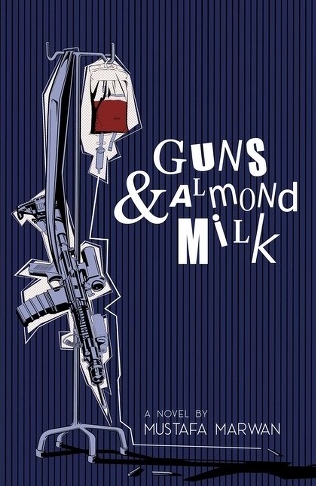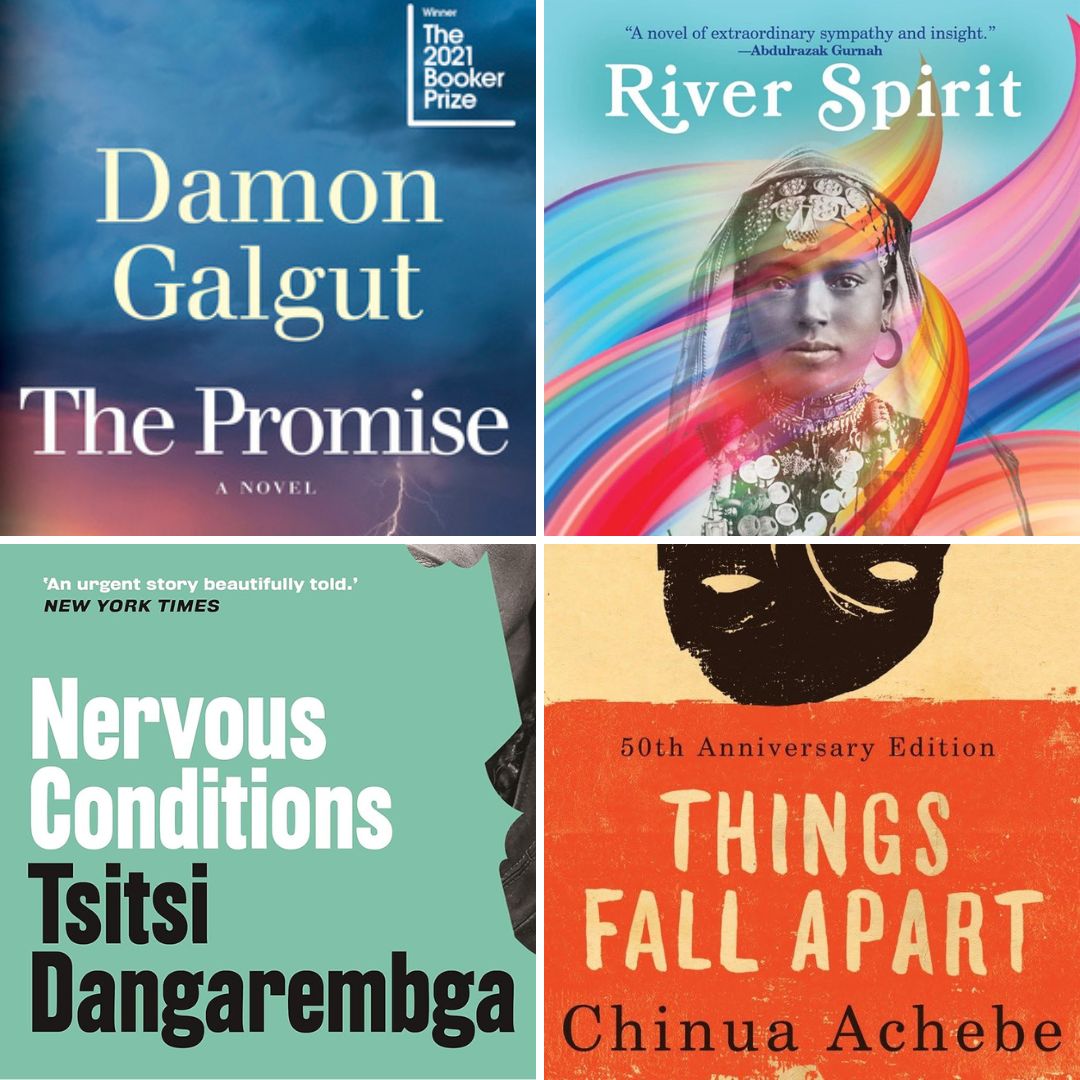Published October 7th, 2024
Interview
by Ibrahim Fawzy
Mustafa Marwan is an Egyptian writer, aid worker, and trainer with over a decade of experience in more than a dozen conflict zones in Africa, Asia, and the Middle East. Mustafa has a Bachelor’s degree in Pharmacy and a Master’s in Public Health and has lectured in the UK. He currently resides in Bangkok, Thailand.
Tint Journal’s Egyptian contributor Ibrahim Fawzy had this interview with Mustafa to talk about his debut novel, Guns and Almond Milk (Interlink Books, 2024), a 2021 Page Turner Awards Finalist. Guns and Almond Milk is a fast-paced story of love, murder, and thrill that provides readers with a fresh perspective on humanitarian work, religion, assimilation, and Middle Eastern politics. It’s set in Yemen and the United Kingdom, where Mustafa has lived and worked.
Ibrahim Fawzy: How did you ensure the narrative’s authenticity while blending personal experiences, historical facts, and imagination in Guns and Almond Milk?

Mustafa Marwan: Over a decade in conflict zones in Africa, Asia, and the Middle East provided the raw material for Guns and Almond Milk. I meticulously constructed a mosaic by weaving together historical facts, firsthand observations, and imaginative flourishes. I thought of the book as a tapestry rich with texture and detail. I followed Chuck Palahniuk’s advice, “teach something new, make [the reader] laugh, and then break their heart.” Hopefully, the authority of the narrative voice shines through in unexpected details, humorous anecdotes, and moments of genuine human connection.
Ibrahim: Guns and Almond Milk is set in Yemen and the United Kingdom, where you have lived and worked, and the setting of war-torn Yemen plays a pivotal role in the story. What was your creative writing process, and what were your struggles as you put your novel together?
Mustafa: I’m a firm believer in capturing the muse at any waiting times throughout the day — whether in a queue at the bank, while strolling down the street, or shopping — by jotting down in the Evernote application. This way, when I sit down to write — which isn’t a daily chore — I have a treasure trove of material to weave into the narrative. In fact, three of my novels were drafted entirely on my phone using this application. As for Guns and Almond Milk, the biggest challenge was capturing the essence of war-torn Yemen. So, I devoured historical accounts and consulted with people who had lived there to ensure authenticity.
Ibrahim: The title appears to symbolize opposing forces or dichotomies. Could you explain the significance of this title and how it reflects the essence of your book?
Mustafa: I’ve always been fascinated by extremes, and how to find the middle ground. Indeed, Aristotle said that virtue is a middle ground between two extremes — one of excess and the other of deficiency. Both extremes are vices. I wanted to highlight this concept by showing the useless extremes that fill our lives, and by encouraging the middle way; the title reflects this. While Guns represent the violence and brutality that plague our world, almond milk symbolizes a gentler, more peaceful way of life. Throughout the novel, these contrasting forces clash, mirroring the protagonist’s internal struggle.
Ibrahim: The protagonist, Luke Archer, grapples with identity issues throughout the book. How did you portray the complexities of being a British-Egyptian Muslim caught between cultural and religious worlds?
Mustafa: I just ask questions. It isn’t my role to provide answers. That is why it was important for me to provide entertainment first, then to ask questions, and leave the answers to the reader. I portrayed the complexities through showing personal struggles, cultural duality, religious identity and inner monologue. Luke Archer’s identity crisis is a central theme. Being British-Egyptian and Muslim, he grapples with cultural and religious pressures. He faces prejudice and discrimination, often feeling like an outsider in both worlds. These internal conflicts manifest in his actions and decisions, driving the narrative forward. Luke’s journey reflects the larger social and political complexities that plague our world.
Ibrahim: Max Gorsky, Luke’s new patient, is a security contractor working for the government forces. Both Luke and Max carry burdens from their past. How did you navigate exploring their shared history and its impact on their present circumstances?
Mustafa: Simply, by alternating between past and present stories in the narrative. I focused in the past narrative on their shared experience, and how their contrasting reactions to these experiences developed the narrative. I aimed for both characters to be unique intersectional characters, not stereotypical ones. Luke and Max’s bond is forged through a shared traumatic experience from their past.
-2022-mustafa-marwan.jpg)
Ibrahim: As you have mentioned, your novel raises questions rather than providing definitive answers. What do you hope readers will take away from these questions, and how do you envision them engaging with the themes presented in the book?
Mustafa: I hope to spark active engagement with the themes explored in Guns and Almond Milk. The novel confronts moral dilemmas and challenges readers to consider their own perspectives. Ultimately, I strive to create an intercultural bridge, fostering understanding and empathy for the Other.
Ibrahim: When you switched to writing in English, did you feel like a different person? Many people find it interesting that, when they switch from their native language to English, they feel like they can wear a mask and pretend to be someone they’re not.
Mustafa: Necessity, not choice, led me to write in English. My first novel — which is unpublished — is in Arabic, but I couldn’t find a home for it. While initially challenging, writing in English offered a surprising benefit — emotional distance from the often-harrowing subject matter. I’ve always admired multilingual writers, believing each language unlocks a new creative lens and fosters a multifaceted perspective.
Ibrahim: If you were to choose four titles that would represent, to you, the most exciting books (perhaps experimental, challenging, or influential in some way) written in English by African authors, what would they be?
Mustafa: It’s truly difficult to mention just four titles, but my favorites are — they aren’t in order: Damon Galgut’s The Promise (2021), Leila Aboulela’s River Spirit (2023), Tsitsi Dangarembga’s Nervous Conditions (1988), and, of course, Chinua Achebe’s Things Fall Apart (1958).

Ibrahim: What are your future aspirations as a writer? How do you envision your work evolving in the future, and what themes or subjects are you eager to explore in your upcoming projects?
Mustafa: As a writer, I aspire to be a bridge between cultures, fostering deeper understanding through my work. My hope is that future novels will continue to spark meaningful conversations about contemporary issues that resonate with readers across the globe. There’s a quote that resonates with me, which is “I want to be friends with people I will never meet.” That’s what motivates me to write — to connect with readers on a human level and create a sense of community through shared experiences.
Nationality: Egyptian
First Language(s): Arabic
Second Language(s):
English,
French
Supported by:

